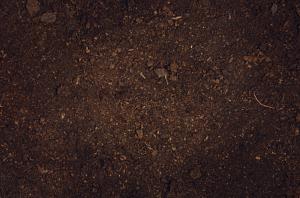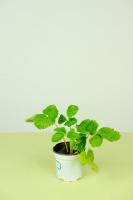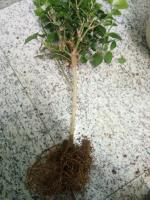Can You Use Pasta Water for Plants?
When cooking pasta, you may have wondered if the leftover water could be used for anything other than pouring down the drain. It turns out that pasta water can be a useful resource for gardening, specifically for watering your plants. Here's what you need to know about using pasta water for plants.
Why Use Pasta Water?
Pasta water can contain a variety of beneficial nutrients for your plants, such as potassium, magnesium, and calcium. Plants depend on these nutrients for their growth and overall health. Instead of wasting these nutrients by dumping the water down the sink, using them to water your plants can be a sustainable and eco-friendly choice.
How to Use Pasta Water for Plants
There are a few things to keep in mind when using pasta water for plants. First, avoid using salted water as it can harm plant growth. Additionally, don't use any water that has been used to cook pasta that contains oil or spices, as they can be harmful to plants.
To use pasta water for your plants, simply let the water cool to room temperature after cooking the pasta. Then, pour the water onto the soil around the base of your plants. The nutrients in the water will gradually seep into the soil, providing essential nutrients for your plants.
Which Plants Benefit Most from Pasta Water?
Most plants can benefit from the nutrients in pasta water, but some plants are more suited to it than others. Plants that benefit most from potassium and calcium, such as tomatoes, bell peppers, and eggplants, will benefit the most from pasta water. Additionally, if your soil is deficient in these nutrients, using pasta water can be a helpful way to replenish them.
Other Ways to Reuse Food Scraps for Plants
Using pasta water isn't the only way to reuse food scraps for your plants. Here are a few other ideas:
Use coffee grounds as fertilizer for acid-loving plants like blueberries and azaleas.
Compost vegetable scraps to create nutrient-rich soil for your plants.
Collect eggshells and grind them up to add calcium to your soil.
The Bottom Line
In conclusion, using pasta water for plants is a simple and sustainable way to provide essential nutrients to your plants. Make sure to avoid using salted and seasoned water, and focus on plants that can benefit most from the nutrients in pasta water. Additionally, don't forget to explore other ways to reuse food scraps for your gardening needs!

 how many times do yo...
how many times do yo... how many planted tre...
how many planted tre... how many pine trees ...
how many pine trees ... how many pecan trees...
how many pecan trees... how many plants comp...
how many plants comp... how many plants can ...
how many plants can ... how many plants and ...
how many plants and ... how many pepper plan...
how many pepper plan...






























